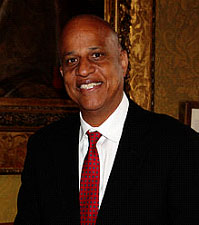BELIZE CITY, (Reuters) – Fresh off a historic win at the polls, Belizean Prime Minister Dean Barrow yesterday voiced confidence that a looming territorial spat with neighboring Guatemala can be headed off once its president-elect reconsiders his position.

Barrow, a 64-year-old lawyer with a scholarly demeanor, led his ruling United Democratic Party to a record third consecutive five-year term in a snap election on Wednesday, claiming at least 19 seats in the 31-member National Assembly.
English-speaking Belize, a former British colony wedged between Guatemala and Mexico on the Yucatan Peninsula, has an ethnically and racially diverse population of about 350,000. In the run-up to his landslide election win in last month, Guatemala President-elect Jimmy Morales pledged to win back large portions of Belize that some believe it lawfully inherited from Spain’s colonial holdings centuries ago.
“I feel confident that after he is sworn in and has had a chance to consult with the foreign policy establishment and military establishment in Guatemala, and be educated, that the kind of rhetoric that we heard before he actually won will be toned down,” Barrow said in an interview with Reuters.
While emphasizing he did not intend that “in a pejorative sense,” he added: “Our coast guard, our military are on alert.” But Barrow expects the neighboring countries to continue collaborating to avoid flashpoints, he said, though he had not yet received a congratulatory phone call or message from Morales.
Morales will be sworn into office in January.
Barrow also said that funding from Venezuela’s PetroCaribe lending program, which since 2012 has boosted his country’s budget by 300 million Belize dollars ($151 million), was a key factor in his re-election.
The funds have mostly been used for a surge in public works projects. Yet despite legislative elections in Venezuela set for next month amid a deep economic recession, Barrow said Belize will not have to raise taxes to make up any shortfall if the loans are cut.
“But with respect to capital spending, which is where the PetroCaribe funds really helped, we would have to scale back” if Venezuela reduces its assistance, he noted.
Belize’s $1.6 billion economy is expected to expand by 2.3 percent this year, down from 3.6 percent growth in 2014 when export crops like sugarcane and bananas surged and record numbers of tourists, according to data from the country’s central bank.
